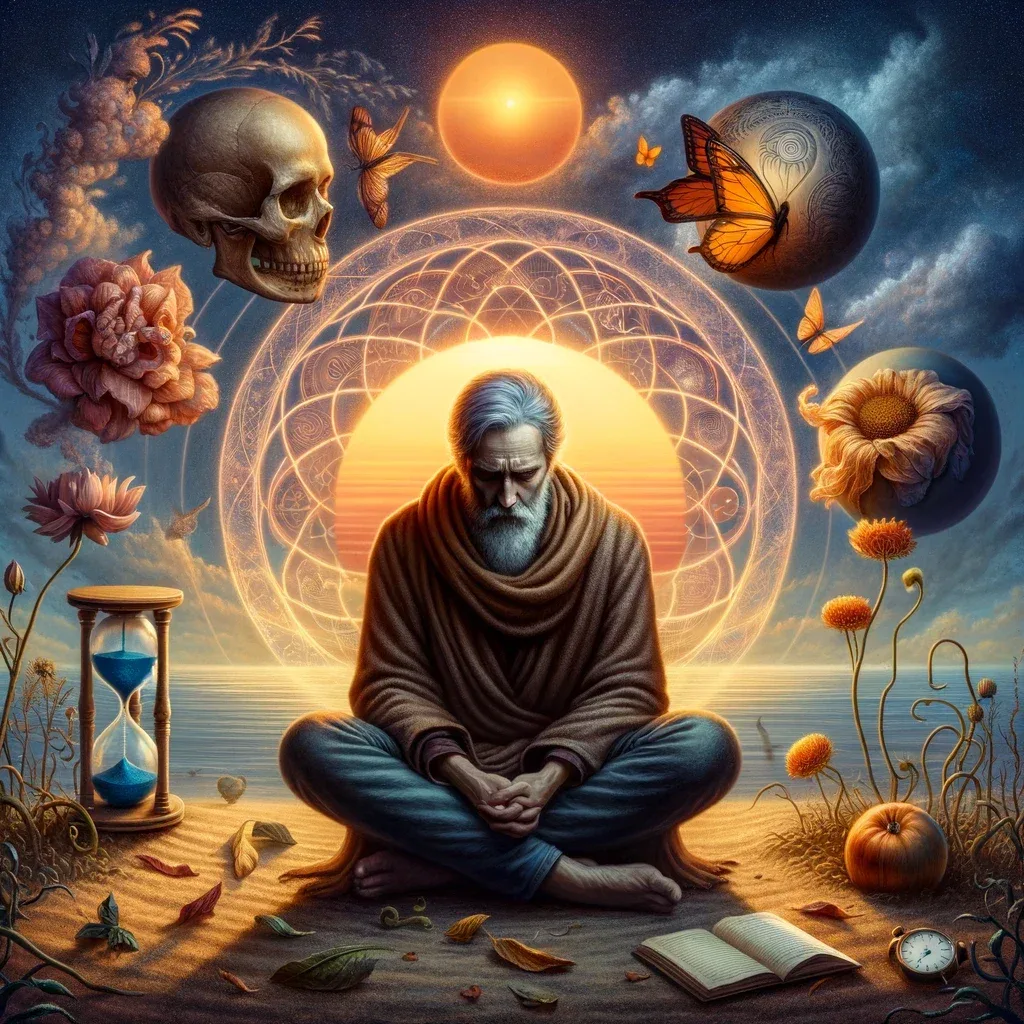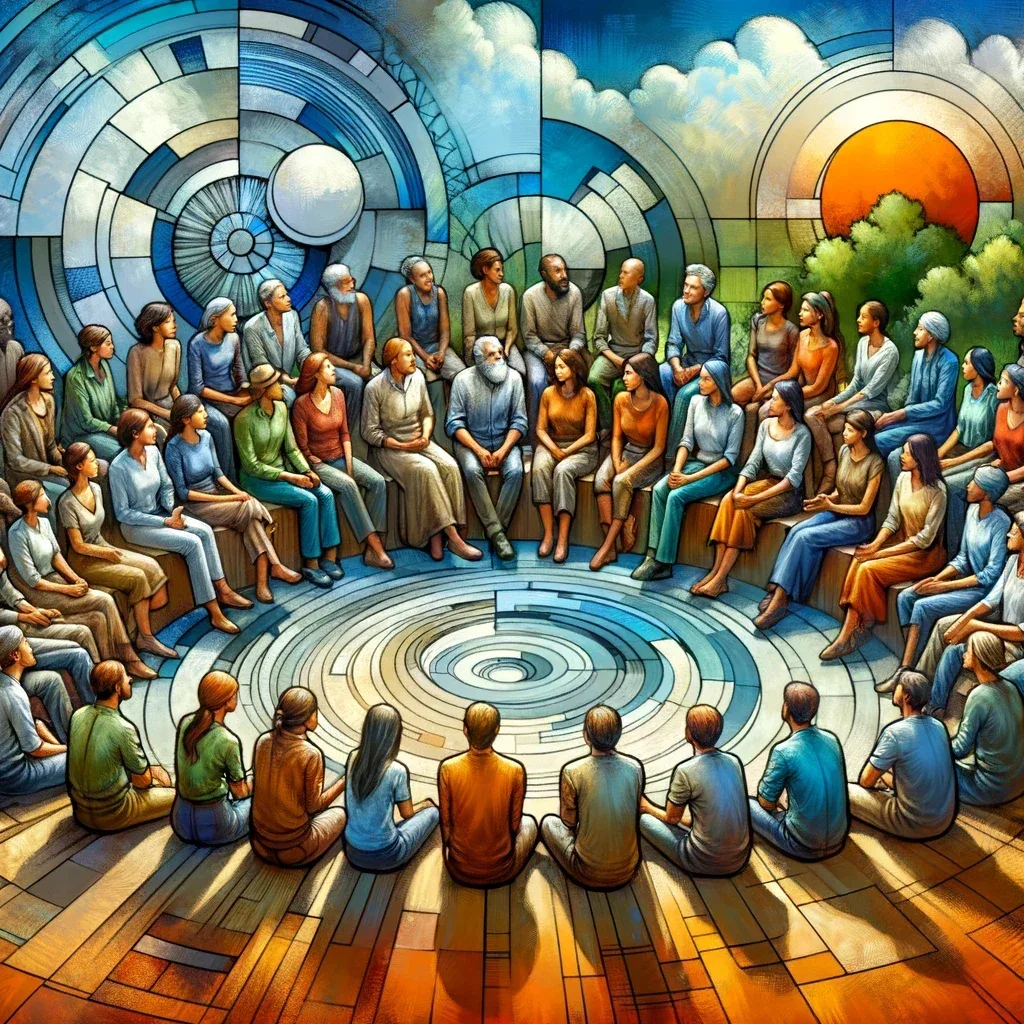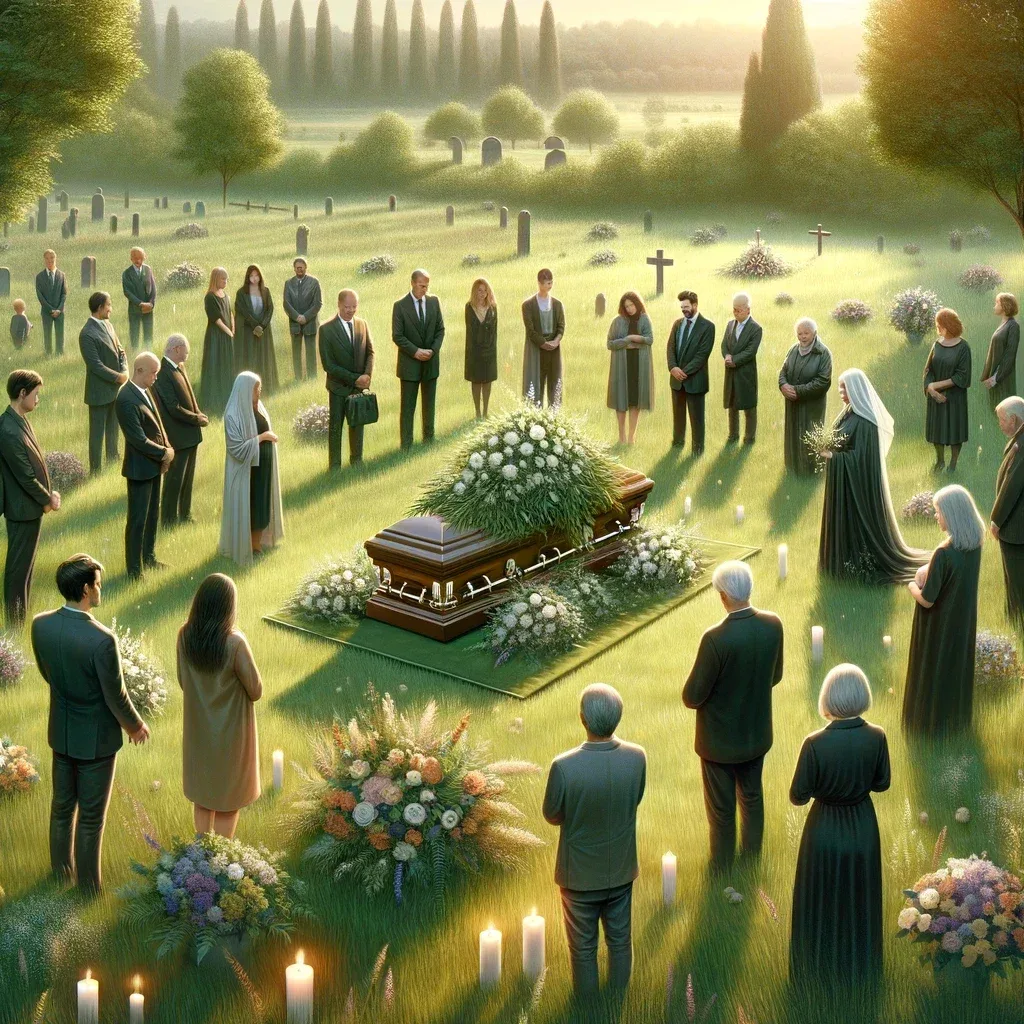The ancient maxim that suggests that “those who cling to death live and those who cling to life die” offers rich philosophical ground for exploration. This article delves into the complexity of this statement, exploring its implications and how they relate to different philosophical and psychological perspectives. We will uncover the hidden meanings behind this paradox and understand how it applies to various aspects of human existence.

The Paradox of Death and Life
Death in Existentialist Philosophy
Existentialist philosophy, especially in the works of Jean-Paul Sartre and Martin Heidegger, emphasizes the importance of confronting death. For these thinkers, recognizing the inevitability of death is crucial to living an authentic life. This acceptance of mortality can paradoxically lead us to live more fully, as it frees us from superficial fears and pushes us towards personal fulfillment.
Buddhist Perspectives on Attachment and Detachment
In Buddhism, attachment is considered the root of suffering. Attachment to material life, including fear of death, traps individuals in a cycle of suffering and rebirth. By letting go of life and accepting death, one reaches a state of enlightenment or Nirvana, where the cycle of suffering is broken, thus illustrating the concept that holding on to death can bring about a deeper form of existence.
Psychological Reflections on the Fear of Death
From a psychological point of view, the fear of death can be debilitating, limiting our ability to live fully. By becoming too attached to life and fear of death, one can fall into restrictive and anxious patterns of behavior. Modern psychology suggests that by facing and accepting death, we can find deeper appreciation and greater meaning in life.
Attachment and Detachment in Practice

Cases of People Who Faced Death
Countless accounts from people who have faced near-death situations or serious illnesses often report an awakening and renewed appreciation for life. These experiences can serve as powerful examples of how confronting death can result in a richer, more meaningful life.
Meditation and Reflection Practices
Practices such as mindfulness meditation and reflection exercises can help with understanding and accepting death. These practices can provide a new perspective on the value of life and how to approach it with a sense of purpose and gratitude.
Examples in Literature and Art
Literature and art are full of examples that explore the relationship between life and death. Works such as “The Death of Ivan Ilych” by Tolstoy and “The Intermittences of Death” by José Saramago offer profound reflections on this topic, showing how acceptance of mortality can lead to a fuller life.
Application in the Modern World

Challenges of Contemporary Society
In modern society, there is often an effort to avoid or deny death, which can lead to a lack of authenticity in the way we live. Recognizing and accepting death can be an antidote to the superficiality and materialism prevalent in many contemporary cultures.
Benefits for Mental Health
Acceptance of death is not only philosophically significant, but can also have practical mental health benefits. It can reduce anxiety and fear, allowing people to live more freely and carefree.
Education and Personal Growth
Incorporating reflection on death into education and personal development can help people develop a deeper appreciation for life. This can be done through courses, workshops and other forms of experiential learning.
Conclusion
The phrase “those who cling to death live and those who cling to life die” challenges us to reconsider our notions of life and death. By exploring and accepting death, we can find a more authentic and meaningful way to live. This paradox invites us to look beyond fear and superficial attachment and embrace life in all its fullness.

References
- Sartre, JP, “Being and Nothingness”
- Heidegger, M., “Being and Time”
- Sogyal Rinpoche, “The Tibetan Book of Life and Death”
- Yalom, ID, “Staring at the Sun: Overcoming the Terror of Death”
- Tolstoy, L., “The Death of Ivan Ilyich”
- Saramago, J., “The Intermittences of Death”

FAQ: Clinging to Death to Find Life
1. What does it mean “those who cling to death live and those who cling to life die”?
2. How does existentialist philosophy approach death?
3. What is the Buddhist view of attachment to life?
4. How does fear of death affect mental health?
5. What practices help in understanding and accepting death?
6. How does modern society generally approach death?
7. Is there any correlation between accepting death and appreciating life?
8. How does literature explore the theme of death?
9. Should death be seen as an end or a beginning?
10. How can philosophy help deal with the fear of death?

This in-depth FAQ covers essential questions on the topic of “Holding on to Death to Find Life,” providing in-depth, thoughtful answers.





